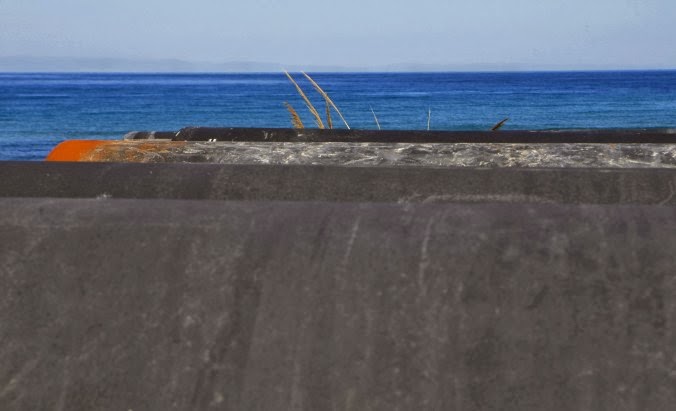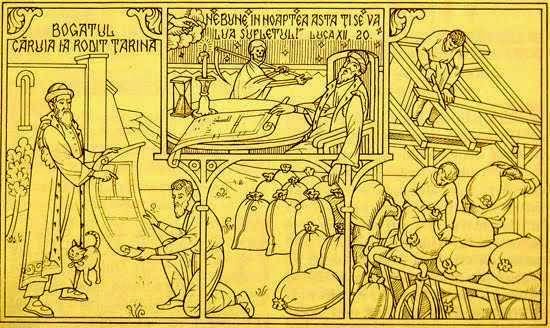Turkey’s Cyprus Water Plan: Peace Pipeline Or Trojan Horse?

ΚΕΡΥΝΕΙΑ - KIRNI, Cyprus—Mehmet Eligon points to a yellow patch of grass on his sprawling farm to show how this year’s meager rains are drying up feed for his goats, sheep and Holstein cows.
“Because of the drought this year, there’s no water in our wells and the crops are drying,” says the 49 year-old Turkish Cypriot wearing military-style fatigues — popular attire for farmers on both sides of Cyprus, split between ethnic Greek and Turkish camps.
He and his two brothers who have worked since childhood on the 2,000-acre (800-hectare) farm have one source of hope: a new water pipeline that will soon link Turkey with Cyprus’ Turkish side and potentially eliminate chronic water shortages for generations.
It’s an ambitious plan that some argue may even help open a path to reconciliation: For Greek Cypriots, access to the Turkish water could ease their own vulnerability to drought, while the energy-poor Turkish side might benefit from natural gas projects Greek Cypriots are planning with international companies.
“Inshallah,” Eligon says in the traditional Muslim entreaty to God. “We shall have this water.”
Mistrust took root in 1974 when Turkey invaded and split Cyprus after supporters of union with Greece mounted a failed coup. A Turkish Cypriot declaration of independence nine years later was recognized only by Turkey, which maintains 35,000 troops in the north.
The pipeline project, estimated to cost more than 1.5 billion Turkish Lira ($680 million), will feed water from the massive Alakopru dam on the Turkish mainland to a smaller dam in the village of Panagra — or Gecitkoy in Turkish — in north Cyprus, near the coast.
For a quarter million Turkish Cypriots in the breakaway north, the pipeline project is an unprecedented marvel of Turkish engineering that will finally quench a parched earth where widespread extraction of groundwater risks turning fertile land into desert.
Construction of two pumping stations in the north and a water treatment plant is well under way. Diggers are already laying pipes as part of a 295-mile (475-kilometer) network to deliver drinking and irrigation water across the north.
The trickiest part of the project is the stretch of pipeline that will traverse the 50 miles (80 kilometers) of Mediterranean sea between Turkey and Cyprus. The pipeline will be anchored to the seabed which goes as deep as 4,600 feet (1,400 meters).
“There is no example like it anywhere else in the world,” says project director Birol Cinar.
Bruce Lankford, professor of water and irrigation policy at Britain’s University of East Anglia, said he’s never heard of an undersea water pipeline before. “My first impressions tell me that it is truly unique,” Lankford said in an e-mail, while also sounding a skeptical note: “Also one might safely predict that the costs will be higher than imagined and the benefits lower than imagined.”
Some 2.6 billion cubic feet (75 million cubic meters) of water is estimated to flow to the north annually, enough to meet needs of Turkish Cypriots for the next half century. Half of that amount will be for drinking water and the rest for irrigation.
Some have already taken to calling the project the “water of peace,” in hopes that a mutual need for the precious resource can inject impetus to a fresh round of reunification talks that began this month after a 20-month hiatus.
Water needs in the south are met by a network of dams and four desalination plants. Although rainfall this winter is less than half the average seasonal amount so far, the Cypriot Agriculture, Environment and Natural Resources Ministry says there’s plenty of water in reservoirs — in combination with the desalination plants — to satisfy needs into next year.
But it was less than six years ago that a major drought depleted reserves, forced water supply cuts to Greek Cypriot households and compelled the government to ship 282.5 million cubic feet (8 million cubic meters) of water to the island from Greece while pushing ahead with construction of additional desalination plants.
Osman Ertug, spokesman for Turkish Cypriot leader Dervis Eroglu, says an offer to share in the water is on the table — as long as Greek Cypriots share in natural gas reserves discovered off the island’s southern coast, close to Israel’s newly found offshore gas fields. Turkish Cypriots say they pay some of the highest prices in Europe for electricity from their pollution-spewing power plants and insist they have rights to a fair share the island’s offshore mineral wealth.
“Just as coal and steel laid the foundation for the creation of the European Union,” says Ertug, “so can oil, gas, water and any other natural resource pave the way for reunifying Cyprus.”
Not quite, says Tasos Tzionis, the Cyprus Foreign Ministry’s top civil servant. Tzionis labels the pipeline as an “act of aggression” dressed up as a well-intentioned gesture that only helps to entrench division.
“In reality, it reinforces the status quo and makes it even more unacceptable since the pipeline will deepen the occupied areas’ dependence on Turkey and it will lead to an influx of Turkish settlers,” he told a parliamentary committee. “Consequently, this project will bolster prospects of the occupied areas’ full integration with Turkey.”
Greek Cypriot lawmakers from across the political spectrum have echoed Tzionis in denouncing the pipeline as Turkey’s bid to “annex” the north and to counterbalance the recent natural gas finds with the allure of plentiful water.
Even Greek Cypriot farmers are suspicious.
Farmers’ union EKA says the pipeline aims to give the Turkish side leverage in peace talks and to help Turkey’s goal of transforming itself into a regional power. They also warn that the pipeline may lead to cheaper Turkish Cypriot produce flooding the market in the south, undercutting Greek Cypriot producers.
Rhetoric from Turkish politicians hasn’t helped. Last year, the Turkish forestry and water affairs minister, Veysel Eroglu, reportedly likened the pipeline to an “umbilical cord” linking Turkey to Cyprus. And there are plans to build an electricity cable linking Turkey with Cyprus.
Even some Turkish Cypriots cast suspicion on Turkish motives. Sener Elcil, chairman of the Turkish Cypriot teacher’s union, says the pipeline above all else serves Ankara’s interests.
“Turkey has been using our community for their benefit, for their interests,” Elcil says.
But Elcil also says that the pipeline might serve peace if it helped create interdependence between Turkey and Cyprus — and even bring Israel into the chain of mutual reliance: “Cyprus and Israel need water, while Turkey and Europe need energy.”
The idea of interlocking interests morphing into peace has increasingly gained traction here at the highest political levels. Cyprus’ President Nicos Anastasiades said that a fair Cyprus peace accord could give Turkey access to ample supplies of gas and heal the strained relations between Ankara and Tel Aviv.
“A Cyprus settlement, reached as quickly as possible, will assist not only in Israeli (gas export) planning, but also contribute greatly to restoring relations with Turkey,” Anastasiades told The Associated Press in an interview.
Turkey’s Energy Minister Taner Yildiz alluded to the prospect of regional “energy-related projects” if peace is achieved.
Farmers have a simple take on the dividends of water diplomacy.
“Water is life for this island, for both sides,” says Cyprus Turkish Farmers’ Union boss Alican Kabakci. “People need to find a way to live together.”
ΠΗΓΗ theepochtimes.com
Photos AP Photos / Petros Karadjias
Photo Gallery kapouti.com











Comments
Post a Comment